Love triumphs over 'jihad' against all odds
Contrary to what the proponents of the 'Love Jihad' theory say, Hindu-Muslim marriages do not always involve conversions. Talking to HT, couples, some of whom have battled violent families and social ostracism, share stories of the triumph of love.
Contrary to what the proponents of the Love Jihad theory say, Hindu-Muslim marriages do not always involve conversions. Here, couples, some of whom have battled violent families and social ostracism, share stories of the triumph of love.
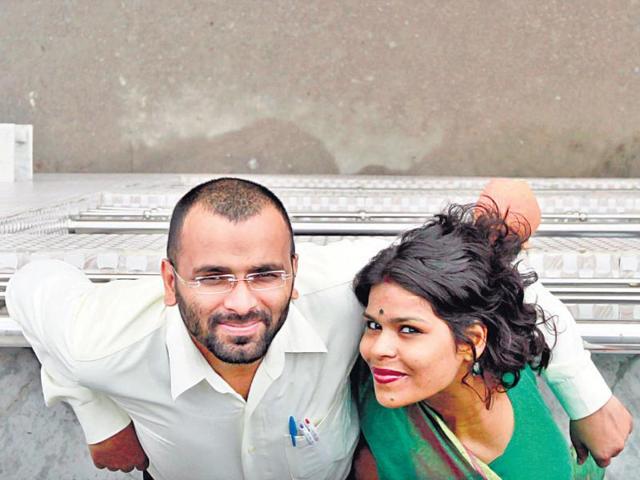
Delhi
Brutalised for making a choice
Kavita, then an MPhil student in Delhi, was kept under house arrest for nine months. Her family members used to beat her almost every day, she says. There were days when she could hardly move. On several occasions, it occurred to her that Akhtar Ali, a research fellow at Delhi University, whom she was dating and wanted to marry, had moved on in life. In the meanwhile, Akhtar was preparing to rescue Kavita legally. Asif Iqbal of Dhanak, an NGO, which has intervened in around 500 inter-faith marriages, suggested that the couple marry under the Special Marriages Act (SMA).
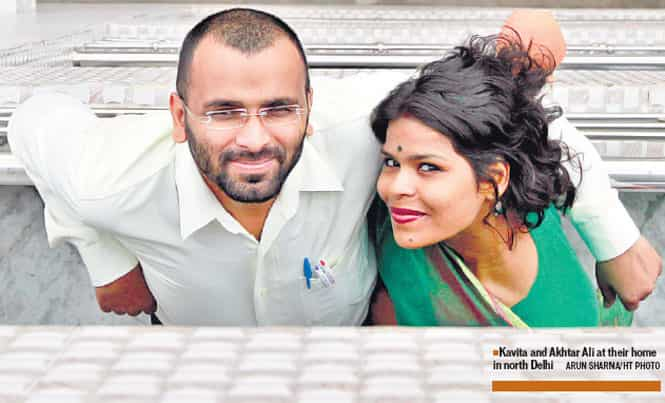
In January this year, based on a writ petition filed by Akhtar, a two-judge bench of the Delhi High court told Kavita that she could choose to go either with her family or with Akhtar. She chose Akhtar. In April, the two got married under the SMA. Since then, they have been living in north Delhi’s Sant Nagar area. Akhtar says he is a Communist and that the religion of his partner is not an issue for him or for members of his family. His parents visit the couple every two months. Kavita’s parents are yet to establish any communication with them.
“While there has been an upsurge of such marriages, the social pressure continues to be the same as it was decades ago,” says Asif Iqbal, who believes that the outcry about the supposed Love Jihad discounts the possibility that the men — Iqbal facilitates all inter-faith marriages regardless of whether the man is a Hindu or a Muslim — could be genuinely in love with their partners. As Akhtar clearly does.
Kavita is now trying to lead a normal life without her parents and siblings — she has four brothers, all of whom participated in the daily torture sessions. “I attempted suicide twice during that period,” Kavita says.
— Danish Raza
Uttar Pradesh
‘My mother keeps crying’
“My wife, Samreen, was quite apprehensive about this interview. You know the situation these days. Love Jihad is a burning issue. It is difficult to trust anyone,” Gopal tells me as we talk in a two-room flat in Saharanpur, Uttar Pradesh. The couple, who have been married for four years, is afraid. Samreen, who is from Moradabad, and Gopal, who is from Shimla, met as students at Meerut University. They decided to get married after a three-year courtship. As both their families are conservative, Samreen and Gopal were aware that they would face much opposition.
Gopal informed his family about his marriage three years ago. Since then, his father has stopped talking to him. Samreen only told her parents about her marriage a fortnight ago. “My mother cannot stop crying. I keep telling her that she should not end up harming herself. She says the same to me,” says the software engineer.
They faced a legal tangle when a Delhi lawyer charged them `20,000 assuring them that their marriage would be registered under the Special Marriages Act (SMA). He then started discouraging them from using the SMA as the pre-registration process involved putting a notice in court inviting objections. Finally, they married under the Hindu Marriages Act. Now, through Dhanak, an NGO which facilitates inter-faith marriages, the couple plans to get their marriage registered under the SMA. Samreen is now worried about her relatives and neighbours putting pressure on her family. “Take any inter- faith marriage... you find that more than the family, it is society that has issues with it,” says Gopal.
— Danish Raza
Delhi
‘My family snapped all ties with me’
Thirty years ago, when two Banaras Hindu University (BHU) students — Munna Lal Verma and Razia Kazmi — got married, they believed that things would change in the decades to come and that society would become receptive to inter-religious marriages. They were wrong. “It all looks the same. If at all, things have changed for the worse,” says Verma, 55, a teacher at a government school who lives in Rohini, West Delhi, with his wife and two children, Aman (21) and Ekta (28).
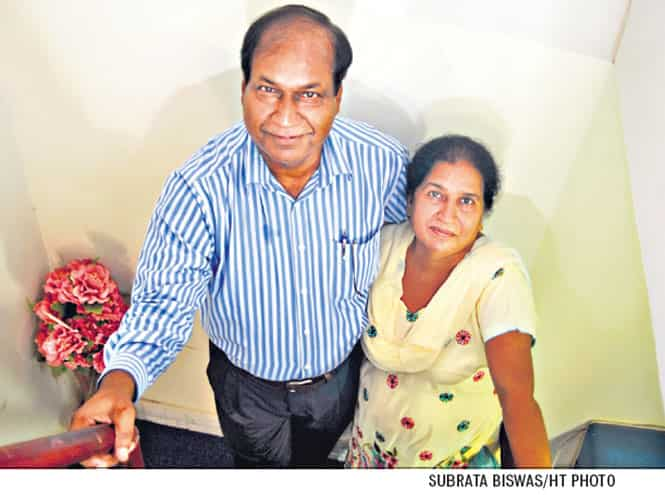
“We have not given the children surnames as they are associated with various religions,” said Kazmi, 54, a housewife. The couple became acquainted while they were pursuing their Master’s degree at BHU and were hostellers when they got married. “We escaped trouble because we told our families about our marriage four months after the event,” says Razia.
“They were unhappy for obvious reasons but could not do much about it.” She adds that, at that time, fellow students and teachers at BHU were very supportive. However, Razia’s family could not come to terms with her decision. “Only my elder sister remained in touch and she passed away five years ago,” she says.
— Danish Raza
Kerala
‘I got threaTening calls’
Two years ago, Prashant, who was studying engineering, eloped with a classmate. The couple was disowned by both their families.
“After we eloped, Sharifa’s (name changed) parents filed a habeus corpus in the Kerala High Court. Fearing arrest, I was forced to take a bail. We had spent enough time in the police station and in court. To add to our problems, I also got threatening calls from some fundamentalist outfits,” says Prashant, who reveals that neither he nor his wife has changed their religion.
“Today, there is no need to do that. We will take a decision when such a need arises,” he says adding that both of them have suffered for the choices that they have made.
Sharifa’s parents only came around once she became pregnant. However, she is still not allowed to attend some family functions.
“When my grandmother died, I was not allowed to stay for long at the house. Members of my family had no problems but some mahal (local mosque) committee members objected to my presence saying it would set a bad precedent in the community,” she says.
Prashant says he tries to be extra supportive as his wife cannot really turn to her family.
“We never interfere in one another’s beliefs or customs. In case we have any differences, we know we have to settle it between ourselves,” he says.
— Ramesh Babu
Bangalore
The much publicised wedding
Imran Hussein (29), a cable operator and Veena Virupakshappa Hebbali (24), a science graduate, decided to show up at the Press Club, Bangalore, when inter-faith couples were having a tough time in the state. That was in May last year. Just a month earlier, two Muslim boys had been attacked with swords by alleged Bajrang Dal activists for talking to Hindu girls in Puttur, 50km from Mangalore. There had been dozens of similar incidents across the state, particularly in coastal Karnataka.
Imran and Veena had run away from Hubli in north Karnataka, the power centre of Pramod Muthalik, head of Sri Ram Sene, which was spearheading the protest against such alliances. They were being chased by a gang of men led by her brother and uncle, both alleged RSS leaders.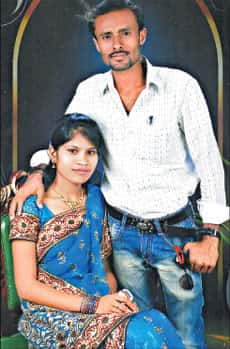
A few months earlier, the brother and his men had waylaid a bus in which the couple was travelling and tried to kill them, alleges Veena. She claims that they were beaten by the gang in front of the police, who did nothing. “They are now in Bangalore looking for us. They claim to be related to a former state chief minister,” says Imran.
For about an hour, the couple narrated their story at the Press Club. Imran talked about how a misdirected SMS from Veena had got them talking and they argued over who fell in love first and the first time they met. Finally, the journalists and activists present at the venue said they would take on the responsibility of getting Imran and Veena married.
On June 1, 2013, the couple got married in the presence of almost the entire press corps and the event made it to the front pages of most local newspapers the following day.
More than a year later, the couple’s woes are far from over. “We went into hiding for four months after the wedding. I could not appear for the second semester exams of my Master of Science degree because my attendance fell short . I am repeating a year,” says Veena. Imran is worried about the phone calls that his relatives have been receiving from the police. The police haven’t yet closed the kidnapping case filed against Imran. “They claim they have lost the letter that Veena had submitted saying we’re married and that she has not been kidnapped,” he says. Veena is still scared of being attacked by her brother or uncle. “I wear a burqa in public so nobody can recognise me,” she says. “I can take them on,” boasts Imran. “First put on some weight,” she laughs. Have they heard of Love Jehad? Imran hasn’t. “The battle we’re fighting is what Love Jihad is,” says Veena.
— Sudipto Mondal
Mumbai
‘Hard time finding a house’
“When we first started dating, my parents didn’t really care that Shan was a Muslim — mainly because no one thought the relationship would last very long,” says PR executive Janhavi Samant, 37, laughing. She and Shan Mohammed, 38, a film director, have now been married for seven years, and have two children.
"We dated for seven years before tying the knot," she says. "So both our parents were comfortable with the idea." The same couldn’t be said of the extended family.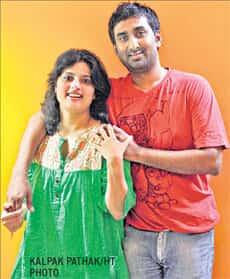
“My uncle and aunts made dire predictions and said a Muslim husband would force me to wear a burqa and would eventually want more wives,” says Janhavi. On Shan’s side, one uncle insisted that Janhavi convert to Islam. The suggestion never reached her. Despite these hiccups, the wedding — celebrated with two ceremonies, a Hindu and a Muslim one — went off smoothly.
“Our families did not give us nearly as much trouble as Mumbai’s landlords did,” says Janhavi. “We had a hard time finding a house on rent because of Shan’s Muslim name.” The neighbours weren’t easy to deal with either. “Whenever I was asked my husband’s surname, I would avoid answering and say things like, ‘He just goes by his first name’,” says Janhavi.
After four years of this, the couple got tired of trying to conceal Shan’s identity and now live in their own flat in Dadar.
When it came to the children too, the couple found a healthy compromise. “We didn’t want to pick one religion or identity because we believe religion is a personal choice,” says Janhavi, who reveals that the actual dilemma they face is whether to orient the children to any religion at all. “While my in-laws are religious, my husband is an atheist who believes kids should not be guided by religion,” she says. “I sometimes think they need some grounding in faith. We will gradually decide how to work that out.”
- Riddhi Doshi
Get Current Updates on India News, Election 2024, Mukhtar Ansari Death News Live, Bihar Board 10th Result 2024 Live along with Latest News and Top Headlines from India and around the world.



